One potential news story that I opted not to cover here on the website was a recent social media post by Worf actor Michael Dorn. In a single Twitter post, Dorn wrote the following: “Just got the news, being summoned back into action. Starfleet calls. #ad”
Well, no sooner had that post hit Twitter than the Star Trek fan community began scrambling to “break” the news of Worf’s return to Star Trek. Websites, blogs, and YouTube shows all jumped on Dorn’s post, using headlines like: “Michael Dorn CONFIRMS Worf’s Return!” As the battle for clicks escalated, Trekkies online began speculating about what form Worf’s return could take, and this too began to grow and spiral out of control.

The Captain Worf series that he’s been trying to get off the ground for the better part of a decade seemed to be 100% confirmed, if you believed certain websites and channels. Others were convinced the Twitter post meant Worf would appear in Picard Season 2 or Discovery Season 4. And of course, many outlets reported their wild speculation with minimal caveats as though it were fact.
All of this hype came crashing down within 48 hours, however, when it became clear that Dorn’s Twitter post was nothing more than an advertisement for mobile game Star Trek Legends, an Apple Arcade exclusive title. Legends looks like so many other mobile games released in the last few years, and I have no desire to sign up to Apple Arcade at £5 per month just to play one mediocre-looking title. Even if it does have Worf!
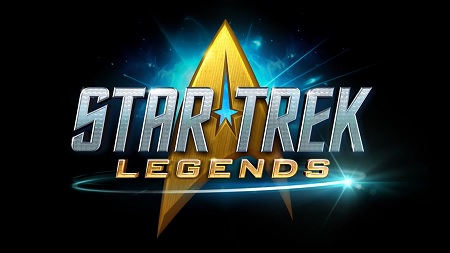
Uninspired mobile games aside, I think this whole Michael Dorn saga is yet another example in a very long line of how we have to be incredibly careful how we use social media and how difficult it is to trust even supposedly “reputable” outlets. In this piece I’ll look at the issue as it relates to the Star Trek fan community in particular, but obviously these same broad points can apply to news, politics, and so on.
Michael Dorn’s post was designed to get attention. He may have written it himself, but it’s equally likely – in my opinion as someone who used to work in video games marketing – that it was written by the marketing team behind Star Trek Legends. But whoever wrote the actual words, the post was deliberately ambiguous and designed to get Trekkies talking, playing on fan hopes of the return of a major character who hasn’t been seen on screen since 2002.
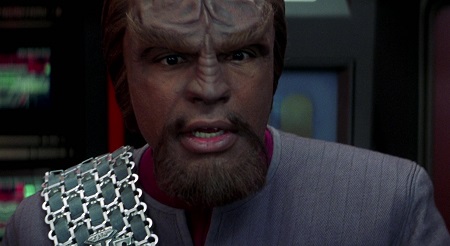
Marketers do this kind of thing all the time; it’s a nostalgia play. It isn’t the first time we’ve seen it in the Star Trek community, either. But because we’re in an age of 24/7 social media use, some of the biggest names in the online Star Trek fandom jumped on Dorn’s comment, seeing an easy way to get clicks – and thus money – for themselves.
Reading the Twitter post, and especially seeing the #ad hashtag, it should’ve been screamingly obvious that this was not connected to a new television show or film. And I have no doubt whatsoever that the social media managers, webmasters, and fan group leaders who began to write clickbaity articles and produce clickbait videos knew that for a fact. But they did so anyway. It was a topic of conversation – and an easy win. Who wouldn’t click on a video or article that screamed “Worf is coming back!” in big bold capital letters? For fans unaware of the original Twitter post, they jumped on such articles and videos hoping to learn that Worf was getting his own show or that he would appear in Picard – the natural implication of such a headline.

I’m lucky to have my own website, and that means I can cover the topics I want to at my own pace. I did see the Michael Dorn controversy unfold, but two things became apparent very quickly. First was that no one commenting online, no matter how large their website and following, actually knew anything substantial. And second, Dorn’s post had the #ad hashtag, which meant it was clearly connected to a product of some kind. Star Trek Legends turned out to be that product.
As a result, I chose not to cover a “story” that was a bag of nothing. I could easily have penned a short article about the prospects of a Captain Worf series and the potential for Worf to appear in Picard Season 2, Discovery Season 4, or Lower Decks Season 2. Maybe doing so would have driven traffic to the website. But it would’ve felt more than a little dishonest.
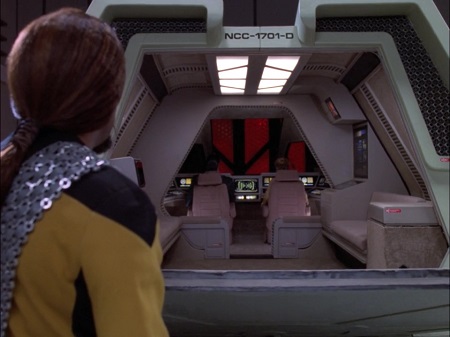
Rumours swirl in the Star Trek fan community all the time – as indeed they do in every online community. But most of these “rumours” are clearly nonsense, based on unverified and often unspecified sources. The truth is that ViacomCBS and the creative team in charge of Star Trek generally do a good job at keeping a lid on leaks. Occasionally a story will leak ahead of an official announcement, but as we’ve seen with some big projects recently, including the new film scheduled for 2023, most of the time that is simply not the case. Yet many social media channels, fan groups, and websites insist on reporting rumour as if it were fact.
When I write speculatively here on the website, you’ll note that I always caveat what I’m saying by explaining that I have no “insider information” nor any “sources.” This is specifically to damp down any theory or speculation that I’m writing about and to clarify that it’s just guesswork on my part. Sometimes it’s educated guesswork, putting together things that seem obvious even if there’s yet to be official confirmation, but even then such a caveat is incredibly important.
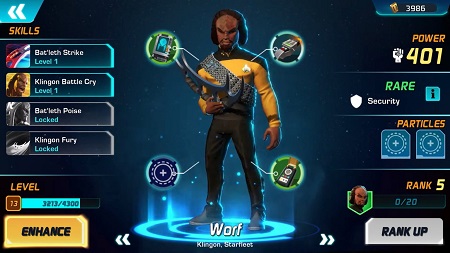
It’s easy for a website or social media group to fall into the trap of writing clickbait based on things like Michael Dorn’s Twitter post, but it doesn’t do anything for the Star Trek fan community. In some cases it can be actively harmful – building up hype and expectations that are obviously only going to lead to disappointment. Marketing folks need to be aware of this, as well. As much as Dorn’s post got people talking about Star Trek Legends, they deliberately set up Trekkies for disappointment by allowing Dorn to imply – albeit in a way that should’ve been easy for fans to see through – that Worf was coming back to Star Trek.
But the blame in this case doesn’t lie only with the marketing team at Star Trek Legends, who are, after all, doing their best to market a product. It lies with fan groups, websites, and social media channels who took that obvious piece of marketing and put their own spin on it, building up the hype of Worf’s possible return to Star Trek in order to drive clicks, views, and website traffic.
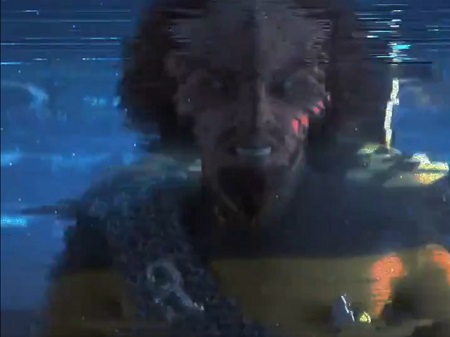
This is what I mean by the “spiral” of clickbait: a slightly dishonest marketing post on social media appears. Fan websites and social media channels jump on it and take it out of context, in some cases completely disregarding or ignoring the possibility of it being marketing. As the hype bubble starts to build, more outlets and fans jump on the story, talking about it and driving more and more clicks and traffic. What began as a single post advertising a mobile game thus exploded to become a big story online, and it didn’t need to be. From the marketers’ point of view, it’s a rousing success! But for fans, at best it’s a mild disappointment.
It’s becoming increasingly difficult to find reliable, objective sources of information online, and it’s getting to a point where, unless something is confirmed unambiguously by an official outlet, I don’t trust it.
We all need to be careful what we read and watch, and try our best not to give in to clickbait!
Star Trek Legends is out now for iOS devices via Apple Arcade. The Star Trek franchise – including all titles mentioned above – is the copyright of ViacomCBS. This article contains the thoughts and opinions of one person only and is not intended to cause any offence.

